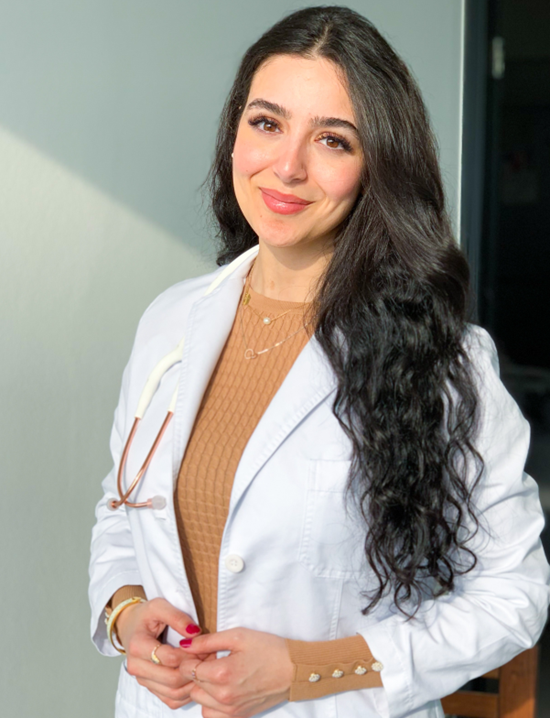
While low-density lipoprotein cholesterol is a common marker for increased risk of cardiovascular disease (CVD), triglycerides (TGs) shared the spotlight at the American Society for Preventive Cardiology 2023 Congress on CVD Prevention during a debate on the use of omega-3 fatty acids in primary CVD prevention.
TG-rich lipoproteins promote the activation of platelets and thrombosis, as well as remnant deposition and inflammation. Several studies supported by genetic, epidemiologic, and clinical data have shown elevated TGs are associated with risk of cardiovascular disease. Fasting or nonfasting TGs 175-499 mg/dL (1.9-5.6 mmol/L) in patients 20 years of age or older indicate moderate hypertriglyceridemia. In moderate hypertriglyceridemia, excess TGs are carried in very low-density lipoprotein, which is atherogenic.
The latest guidelines from the American Heart Association and the American College of Cardiology include a Class I recommendation to assess patients with hypertriglyceridemia for lifestyle factors, implicated medications, and secondary disorders.1 For adults aged 40 to 75 years with moderate or severe hypertriglyceridemia >500 mg/dL (5.6 mmol/L) with an atherosclerotic cardiovascular disease (ASCVD) risk of 7.5% or higher, there is a Class IIa recommendation to initiate statin therapy.1 Guidelines released by the European Society of Cardiology and the European Atherosclerosis Society 2016 were in agreement.
If lifestyle changes are addressed, including adopting a low-fat diet and limiting alcohol consumption, and statin therapy has been initiated, the pivotal question remains: Should supplementing with omega-3 fatty acids be considered?
To help answer that question, the ASCEND study enrolled a total of 15,480 patients with diabetes but no evident CVD. Participants were assigned to receive 1-g capsules containing either n−3 fatty acids (fatty acid group) or matching placebo (olive oil) daily. Patients were followed for 7.4 years. The study’s primary efficacy outcome was the first serious vascular event, such as myocardial infarction, stroke, or transient ischemic attack, or death from any vascular cause (not due to an intracranial hemorrhage). Vascular events occurred in 689 patients (8.9%) in the fatty acid group and 712 (9.2%) in the placebo group (rate ratio, 0.97; 95% CI, 0.87-1.08; P=.55).2 There were no significant differences between the 2 groups.
Matthew Jay Budoff, MD, FASPC, a professor of medicine and endowed chair of preventive cardiology at the David Geffen School of Medicine at the University of California, Los Angeles, discussed the latest research on the use of omega-3 fatty acids for CVD prevention. He explained that trials conducted with low levels of omega-3 mixtures, such as the JELIS trial, which used 1.8 g, showed no significant cardiovascular benefit. However, the REDUCE IT trial used purified EPA/d 4 g, and it demonstrated some benefits in CVD prevention. Dr. Budoff also noted the significant plaque reduction findings in the CHERRY and EVAPORATE trials.
Eugenia Gianos, MD, the system director of cardiovascular prevention at Northwell and health director of women’s heart disease at the Katz Institute for Women’s Health and Lenox Hill Hospital, emphasized that omega-3 fatty acids play a minimal role, if any, in ASCVD prevention. Moreover, like any medication, there are potential side effects to consider, including the risk of atrial fibrillation (AF) and bleeding. In the 3 trials evaluating the use of omega-3 fatty acids for ASCVD prevention—STRENGTH, REDUCE IT, and OMENI—a significant increase in the incidence of AF was observed.
The STRENGTH trial enrolled 13,086 patients with established ASCVD, diabetes with an additional RF, or high-risk primary prevention. Patients were randomized to receive either Epanova (an omega-3 fatty acid) or placebo (corn oil) and followed for 3 to 5 years. The trial was prematurely halted by the Data Monitoring Committee due to lack of efficacy. The primary end point, a composite of cardiovascular death, nonfatal myocardial infarction, nonfatal stroke, coronary revascularization, or unstable angina requiring hospitalization, occurred in 785 patients (12.0%) treated with Epanova compared with 795 (12.2%) treated with corn oil (hazard ratio, 0.99; 95% CI, 0.90-1.09; P=.84).4
Consequently, Dr. Gianos advocates for a paradigm shift, favoring diets rich in omega-3 fatty acids over supplements, to see cardiovascular benefits, which is an approach backed by evidence. Prioritizing these dietary interventions as prescriptions for patients at risk for cardiovascular disease holds promising potential.
Dr. Alaa Diab is a resident at the Greater Baltimore Medical Center and is pursuing an MPH degree at the Johns Hopkins Bloomberg School of Public Health. She served as a CardioNerds Conference Scholar for the American Society for Preventive Cardiology 2023 Congress on CVD Prevention.
References
- 2018 AHA/ACC/AACVPR/AAPA/ABC/ACPM/ADA/AGS/AphA/ASPC/NLA/PCNA guideline on the management of blood cholesterol: a report of the American College of Cardiology/American Heart Association Task Force on Clinical Practice Guidelines. J Am Coll Cardiol. doi:10.1016/j.jacc.2018.11.003
- ASCEND Study Collaborative Group; Bowman L, Mafham M, Wallendszus K, et al. Effects of n-3 fatty acid supplements in diabetes mellitus. N Engl J Med. 2018;379(16):1540-1550. doi:10.1056/NEJMoa1804989
- Curfman G. Omega-3 fatty acids and atrial fibrillation. JAMA. 2021;325(11):1063. doi:10.1001/jama.2021.2909
- Nicholls SJ, Lincoff AM, Garcia M, et al. Effect of high-dose omega-3 fatty acids vs corn oil on major adverse cardiovascular events in patients at high cardiovascular risk: the STRENGTH randomized clinical trial. 2020;324(22):2268-2280. doi:10.1001/jama.2020.22258







 © 2025 Mashup Media, LLC, a Formedics Property. All Rights Reserved.
© 2025 Mashup Media, LLC, a Formedics Property. All Rights Reserved.